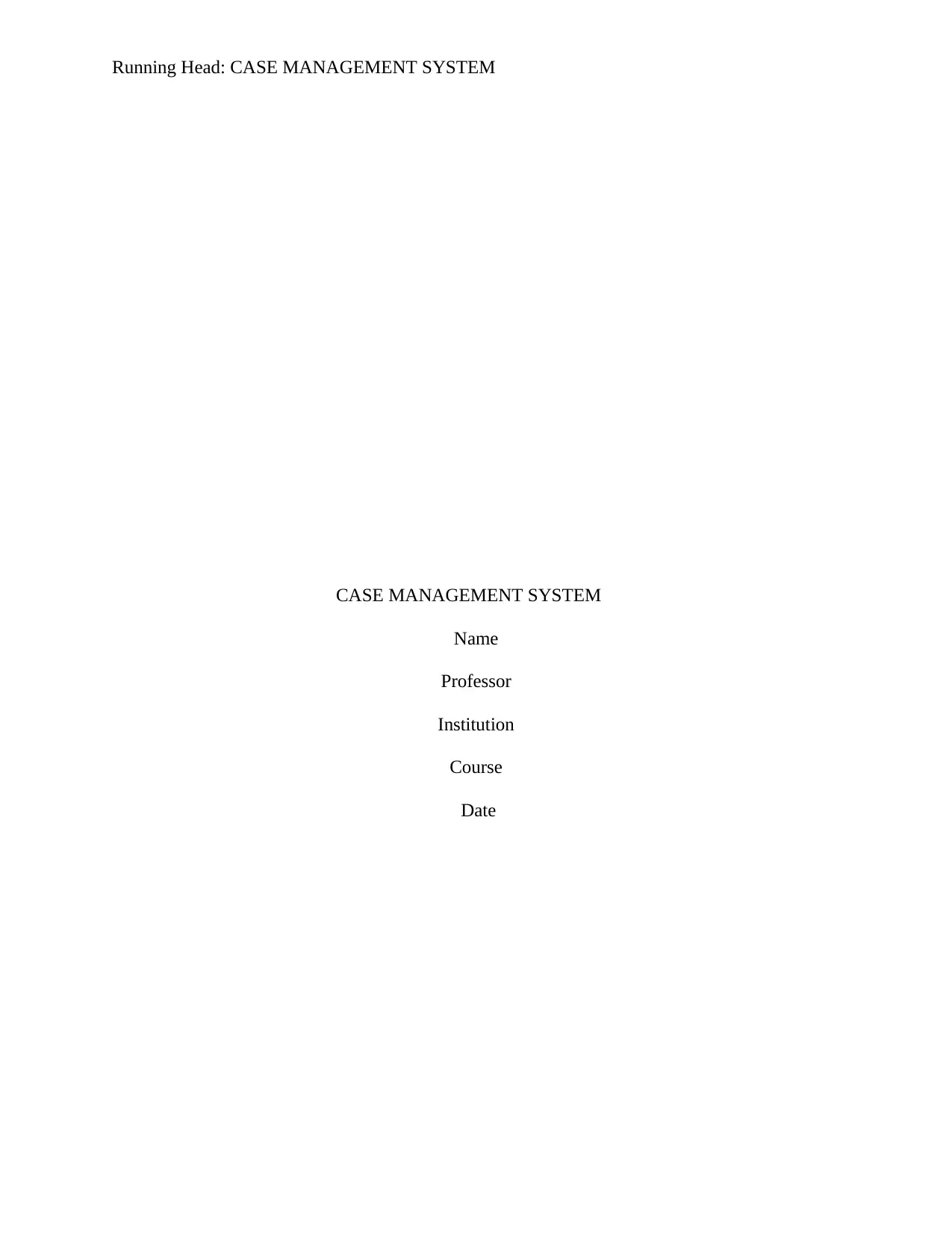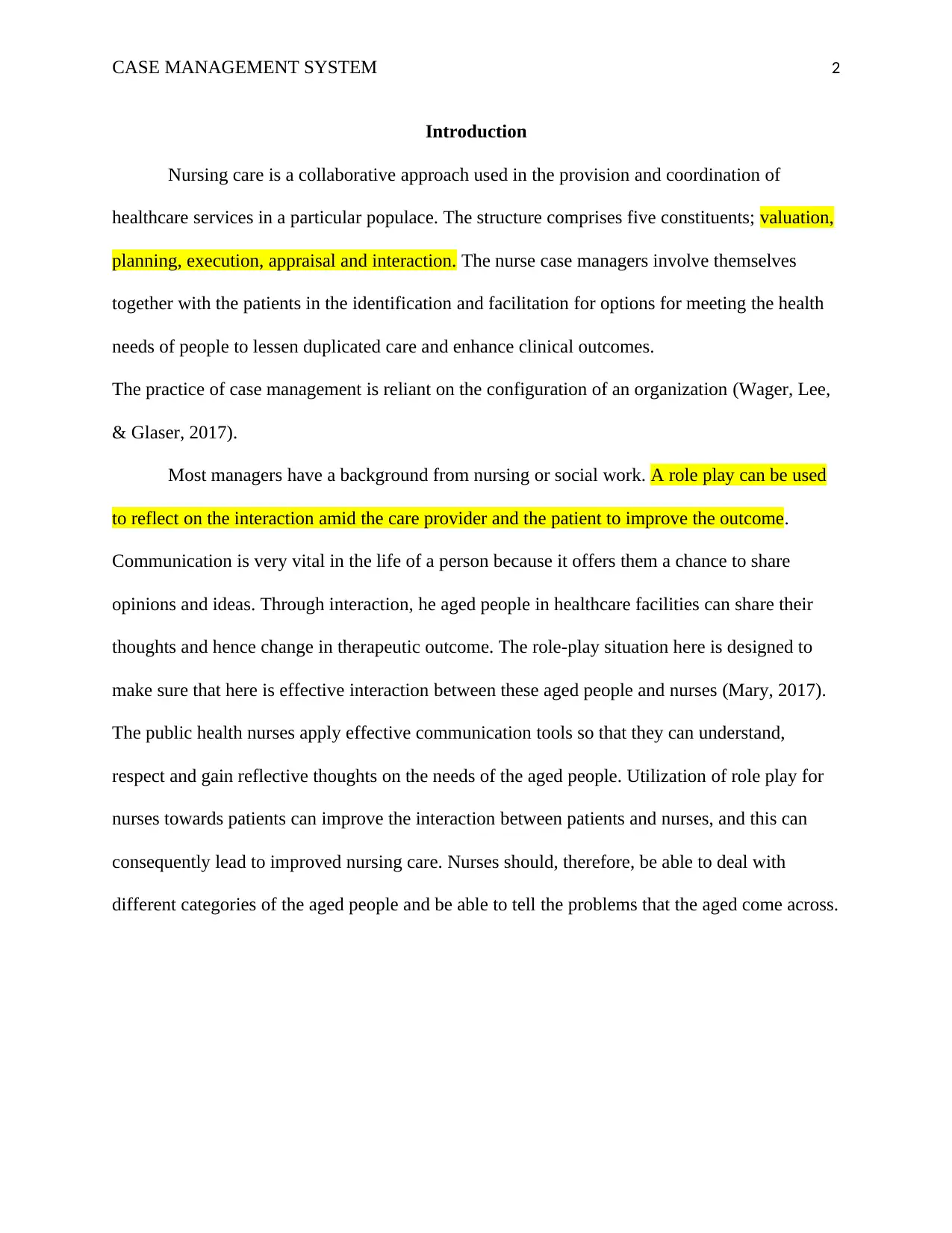Case Management System: Improving Nurse-Patient Interaction
VerifiedAdded on 2022/10/01
|3
|365
|21
Case Study
AI Summary
This case study delves into the Case Management System, emphasizing its role in healthcare delivery. It explores the five components of the system: valuation, planning, execution, appraisal, and interaction. The assignment highlights the importance of nurse-patient interaction, particularly through role-playing, to improve communication and patient outcomes. It discusses how effective communication tools can help nurses understand and address the needs of aged patients, referencing the significance of communication in sharing thoughts and ideas within healthcare settings. The study underscores the benefits of role-playing in enhancing nurse-patient interactions, ultimately leading to better nursing care. It also references the need for nurses to be adept at handling diverse patient populations and identifying their specific challenges. The case study utilizes references to support its arguments, providing a comprehensive overview of the Case Management System.
1 out of 3










![[object Object]](/_next/static/media/star-bottom.7253800d.svg)